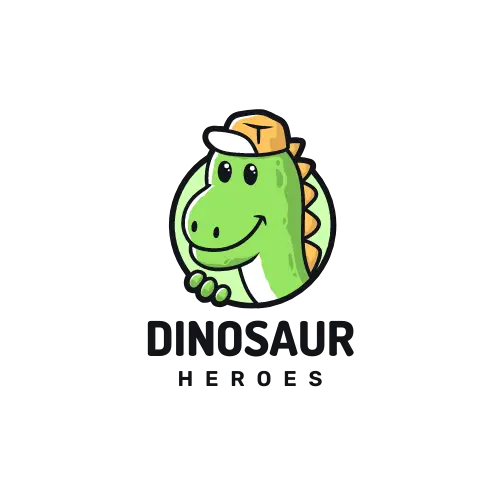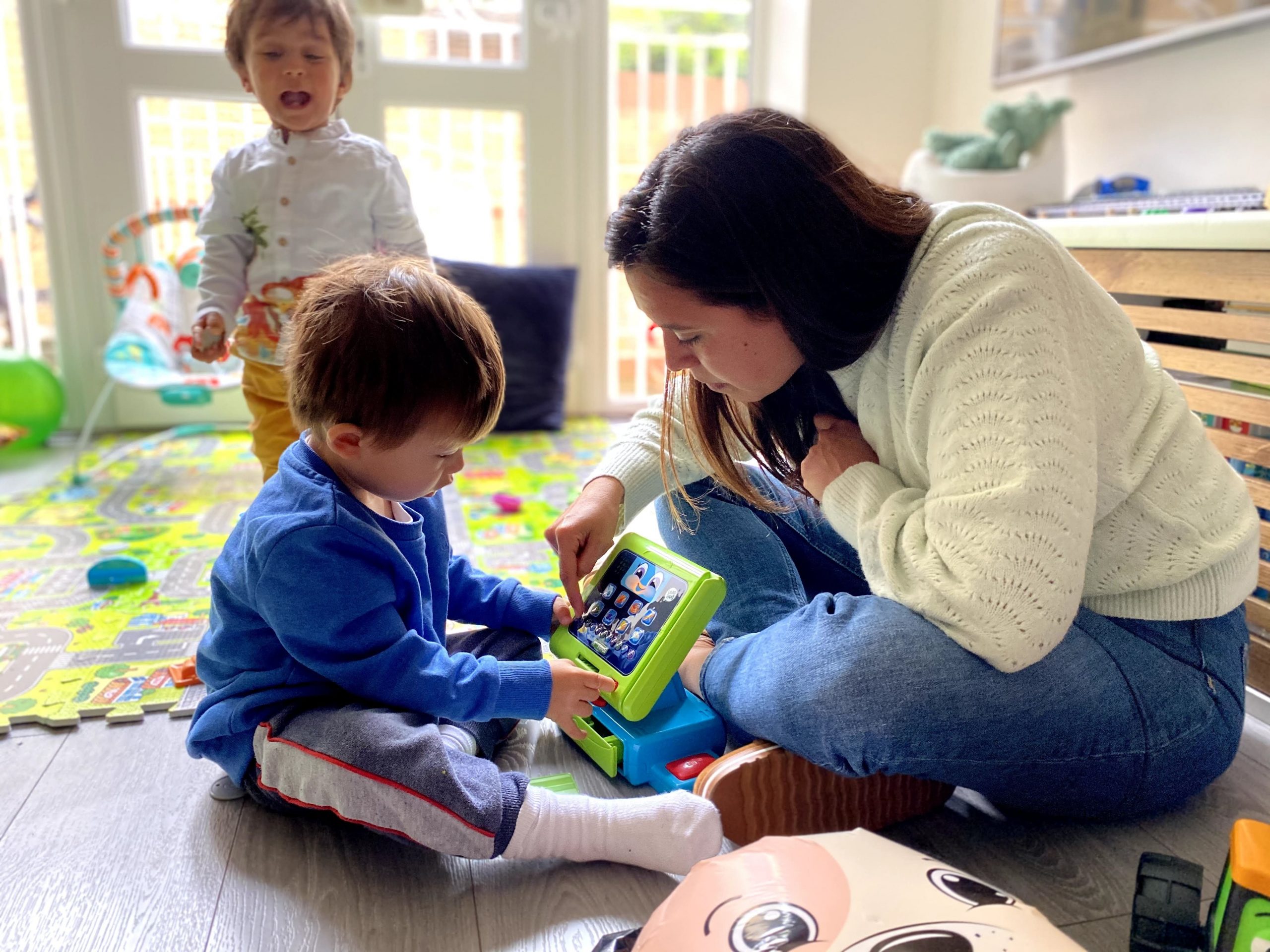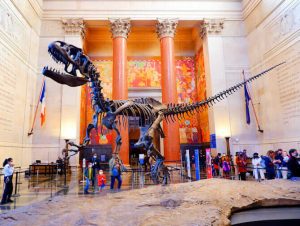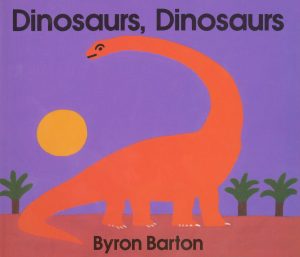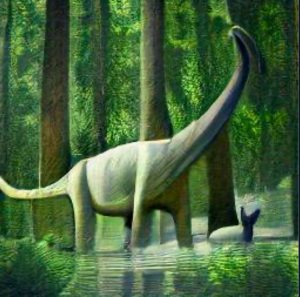Perhaps you have a child who’s obsessed with dinosaurs and you are wondering if that is healthy and whether you should encourage this interest. In this article we will explore the many benefits of playing with dinosaurs, different activities and games you can encourage dinosaur play, and what to avoid.
What do children learn when playing with dinosaurs?
The eight benefits of playing with dinosaurs, for children from the age of 2 to 8:
- Develop creativity and imagination
Most children start showing an interest in dinosaurs around the ages of 2 to six, around the same time as they are likely to engage in pretend play. When they create a fictional world of dinosaurs roaming the earth – using model dinosaurs worlds and figurines – their imaginative brain is stimulated. Studies have shown that having a creative outlet reduces stress levels and make children happier and healthier in general.
- Build empathy through role play
Perhaps the most exciting part of playing with dinosaurs, especially for a toddler, is pretending to be one! When they role play, they get a chance to see things from a different perspective – in this case, a large animal who dominates other living creatures on earth, which is a great fantasy for young children who might feel small and insignificant. You can help them develop empathy by asking them questions like “Do you think a T-rex prefers to live alone or in a group?” and “Were dinosaurs good parents?”.
- Learn deep mastery
Some children loves learning all the facts about dinosaurs, e.g. “What is the tallest dinosaur?” or “How many teeth does a dinosaur have?” Often, parents become amazed at how much their children know about dinosaurs and children get a boost of confidence to learn even more about the topic when they receive praise from you.
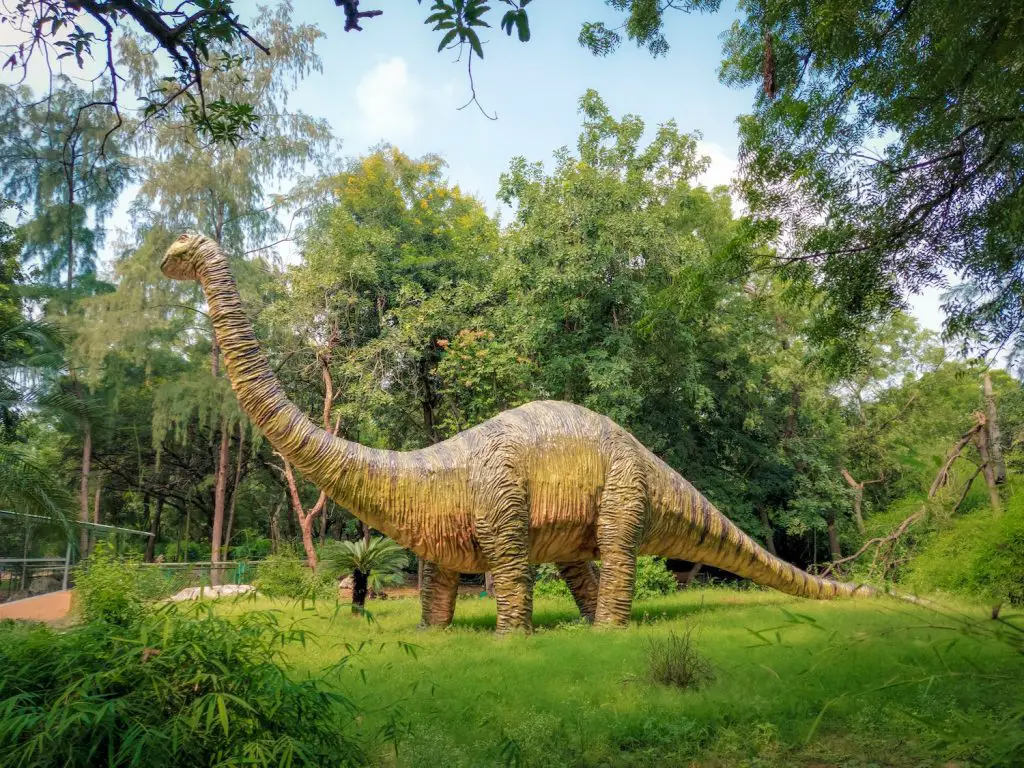
- Understand the natural world
Dinosaur is the perfect introduction to STEM and the natural world. Many children (and adults) are fascinated by the mysterious natural world that existed millions of years ago, with living creatures that walk the same earth we are standing on today. This serves as a great starting point for children to learn about science – such as animal life cycles, eating habits, habitat, predator vs prey, migration, fossils… and many more.
- Build focus and concentration
Activities such as dinosaur skeleton excavation, habitat building, dinosaur egg hatching… are all great table activities for children that requires concentration. Great to fill an afternoon at home or to entertain a group of kids at a birthday party.
- Develop communication and verbal skills
Asking questions and finding answers are important parts of the learning process in general. That’s why kids love asking “Why?” and reciting what they’ve learned to you over and over again. This helps them build on their vocabulary and connect with people around them.
- Build cognitive skills
Although not unique to dinosaurs, children who have an interest interest in a particular topic – dinosaurs, trains or dolls – are better learners and smarter kids. Several studies have now found that older children with these types of focused interests typically have higher than average IQ.
- Encourage critical thinking skills
What we (and the science community in general) know about dinosaurs are extremely limited. They lived millions of year before us, and many of what we know about dinosaurs – their size, living habits, or even whether they have feathers – are based on deductions we make from investigating the fossils we see, and our understanding of similar animal behaviours that exist today.
For older children, we can help them to understand that science is something that is constantly evolving. With time, they too, can contribute to the scientific community by investigating and challenging norms with new information and carefully constructed arguments.

Dinosaur Play Ideas for Kids
- Dinosaur small world fun
This is a fun and easy game to play with a toddler or young child. All you need is a container (you can use a cardboard box or a large plastic tub) and some natural ingredients like leaves, branches and sand to create a mini habitat for dinosaurs. Pop a couple of miniature dinosaurs and you would have created your very own dinosaur world. Detailed instructions can be found here.
- Build a dinosaur
You can use anything for this – lego sets, play dough, magnetic shapes or even coloured papers. The great thing about this activity is that you can make it very simple for toddlers by using a simple dinosaur cartoon shape to copy. Alternatively, you can adapt the activity to be more nuanced if you have older children that are interested in learning about the differences between a Brachiosaurus and a Diplodocus.
- Keep a dinosaur pet
Not literally of course! A dinosaur pet can be something you’ve made from the “Build a dinosaur” activity above, toys you excavated or hatched from store-bought dinosaur eggs. Add to the fun by naming the dinosaur pets you have.
- Dinosaur excavation
There are plenty of dinosaur excavation sets that are perfect to build on your child’s fine motor skills, focus and patience. Most of these come complete with a chisel and brush, providing an afternoon of messy fun for your child. Just be sure to place sheets of newspapers underneath (or do it outdoors on a nice summer’s day) to make cleaning up afterwards super easy.
- Create fossilised footprints
All you need for this is some play dough and miniature dinosaurs. Flatten some play dough to create a disk. Then ask your child to stomp their favourite dinosaur across the disk. When the disks dry out they become fossils of your toy dinosaur’s footprints. For older children you can teach them how to gather information from footprints – like whether the dinosaurs are large or small, whether they travel alone or in a herd – very much like what palaeontologists do in real life.

- Dress up as a dinosaur
We have written a whole post about fun and adorable costumes you can buy for your toddler to dress up as a dinosaur. We love this activity because your child can play a big role in how this activity will look like. They can choose to be wild and roar around, hide from predators or be as dominating as they want.
- Word search and puzzles
A classic children’s activity that is both mentally stimulating and fun. Find a version that is suitable for children so that they can learn about the dinosaur words as they play without difficult jargons. Be sure to check out our Free Word Search on Dinosaur Heroes.
- Story time
Make story time come alive. Accessorise books with Triceratops finger puppets or pick up a dinosaur sound book that you can read and play together.
What not to do with your dinosaur obsessed child
Although we are not exactly sure why, children typically begin to grow out of dinosaurs around the time they start school. But some parents feel the pressure to clamp down on this interests.
- Worry that their children are overdoing it (“becoming obsessed”)
Sometimes parents become worried about their dinosaur obsessed child, thinking that this is “too much!”. They try to limit how much dinosaur materials to which they expose their children in order to discourage their “obsession”. It might be helpful to remember that many children are obsessed with something when they are young. So if it isn’t dinosaurs, it could be Thomas The Tank Engine, or Princesses.
Being intensely passionate about something isn’t (on its own) a sign that something is wrong with your child. And given how short-lived this interest is likely to be, it is probably better to enjoy this curious phase of theirs before they grow out of it. It wouldn’t be long before they grow into tweens that are uninterested in anything you can offer them!
- Trivialise their interests
Another way parents – sometimes unknowingly – discourage their children’s interest in dinosaurs is to make their children’s interest and knowledge in the subject appear trivial. Uninterested parents may feel that knowing the different species and types of dinosaur unimportant to their children’s growth, and therefore offers only lukewarm reception to their children when they go to their parents with something new they’ve learned.
However, consistently dismissing their interests may in turn make them feel like the parents are dismissing their entire presence, which is unlikely to be the intention of the parents!
